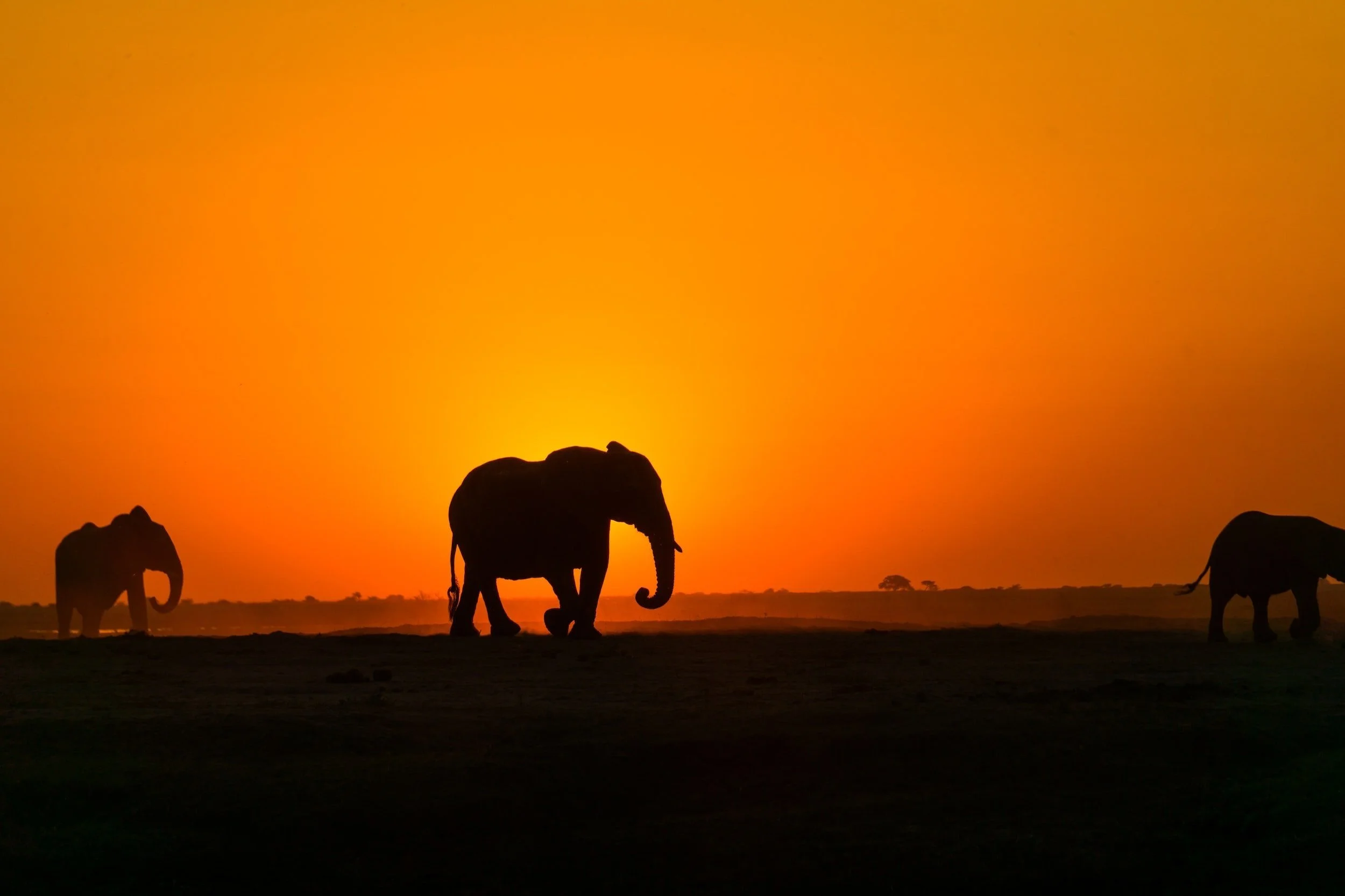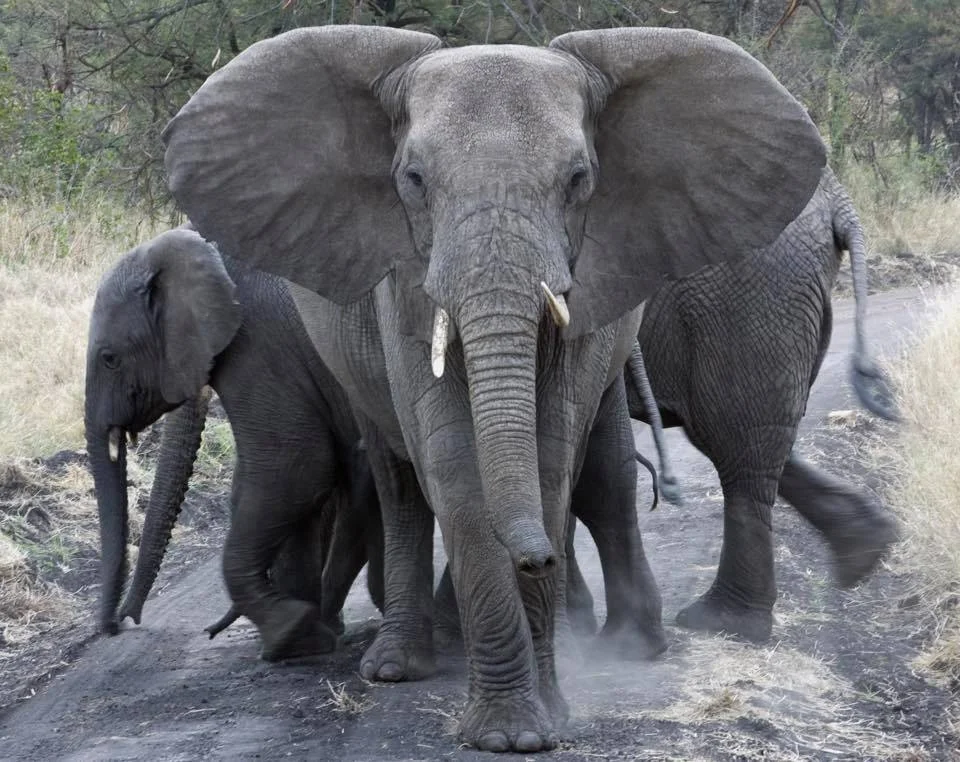Elephant POPULATION IN AFRICA
100 elephants are illegally poached every day and more than 30,000 African elephants are killed every year.
There are two distinct species of elephants in Africa: the savannah and the forest elephant. The forest elephants are labeled critically endangered by the IUCN! The elephant population in Africa is currently estimated to be around 400,000, a decline of over 100,000 in just the past decade - and poaching and human/animal conflict and habitat destruction continues to threaten those numbers.
Why Are African Elephants Poached?
Demand for ivory in the illegal luxury trade drives the slaughter. A single tusk can weigh up to 250lbs and can command $1,500/lb. The situation is so dire it is having a potential evolutionary impact. In Mozambique, a greater proportion of elephants are being born without tusks and researchers believe this is an evolutionary protection - following years of civil war and untenable poaching of Africa’s iconic “big tuskers”. Elephants are herbivores and require space to roam and feed. They cover vast areas to forage for sustenance and their migratory patterns mean they fertilize and churn over the soil as they follow their natural, geographical instincts.
Their habitats are shrinking and they’ve lost over 50% of their habitat in the past 40 years. Though they are protected in some reserves and countries, the loss of habitat often forces them to cross dangerous landscape where poaching or human-animal conflict is a high risk.
“There is mystery behind that masked gray visage, an ancient life force delicate and mighty, awesome and enchanted commanding the silence ordinarily reserved for mountain peaks, great fires and the sea.”
Over and Above Africa founder, Kerry David with Misha, at Elephant Havens in Botswana
Barclay/Stenner luxury mobile safari’s. James Stenner with baby Joy at Elephant Havens.
What We’re Doing to Increase The African Elephant Population
Herd Translocation, elephant calf support, elephant collars, tracking, veterinarian costs
Thanks to the generous support of Over & Above Africa donors and our partners on the ground, we’ve been able to fund multiple elephant initiatives that include Elephant Havens, Tswale’s emancipation, the Babanango Game Reserve and Manyoni Private Game Reserve, to name but a few. Prior to building our Wildlife Rehabilitation Center in 2024 and 2025, our largest project was successfully helping to transfer a small breeding herd to safer grounds for the rest of their lives. These “translocations” throughout Africa have become vital to ensuring the survival of elephant populations with hunters and poachers so fixated on ending their lives.
These gentle giants, when left alone by mankind, are keystone species. Providing nutrients to species beneath them after tearing down trees and bushes, digging up the earth with their migrations and preventing biodiversity loss. Human/Animal conflict remains a troubling factor in their assured safety, and we continue to emphasize how important it is to both support the communities impacted by elephants as it is to support the elephant herds themselves.
Elephant and Rhino Relocation at Nambiti Private Game Reserve
Sometimes game reserves are so successful in their conservation that animals must be moved to another reserve to conserve the land for the remaining animals. Relocating elephants to other like-minded game reserves is an effective process used to steward the land. If you don’t have the land and food to feed the animals, the animals start impacting on other species. So it’s critically important to have an equilibrium between all species on a game reserve.
We worked together with our friends on the Nambiti Private Game Reserve to financially support the moving a bull elephant and male rhino on another game reserve.
Why Elephants are Important
Elephants are one of the 5 iconic African species and are a big draw for safaris and eco-tourism, bringing in revenue important for local economies and conservation. Elephants help maintain the ecosystem and clear pathways in forested areas, which promotes biodiversity for other species. They are intelligent, self-aware social animals who are led by a matriarch. When the matriarch falls victim to poaching, the herd loses the guidance and inherent knowledge she provides about where to graze, which waterholes are safe to frequent and which are safe areas to traverse. Often the juvenile members of the herd do not have enough knowledge to help increase the herd’s chances of survival.
How Can You Help?
Share their story to build awareness and bring attention to their plight
Report wildlife crime and support sustainable products
Hold a local fundraiser in your community to raise funds to help our work
Adopt an elephant related project




